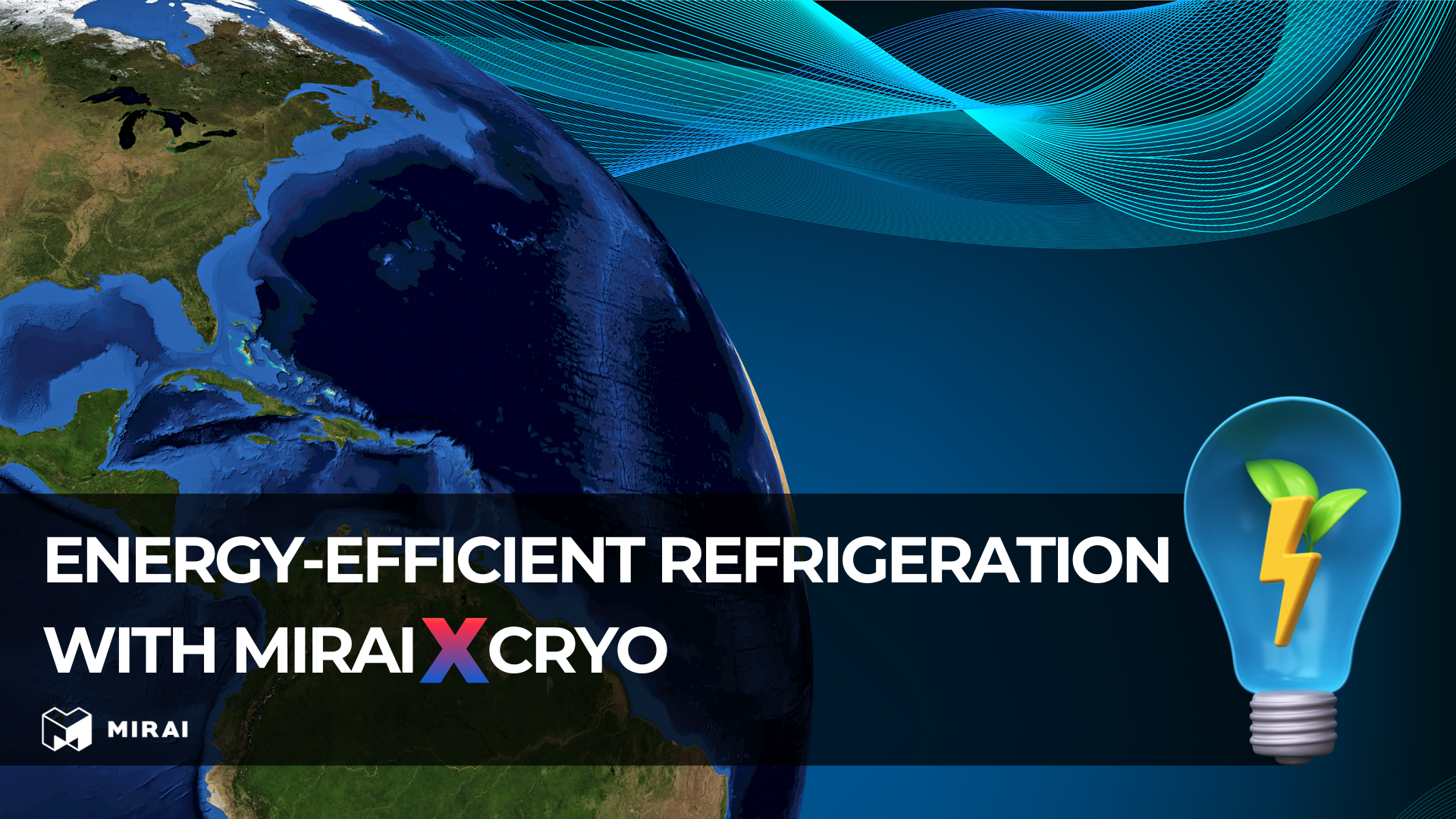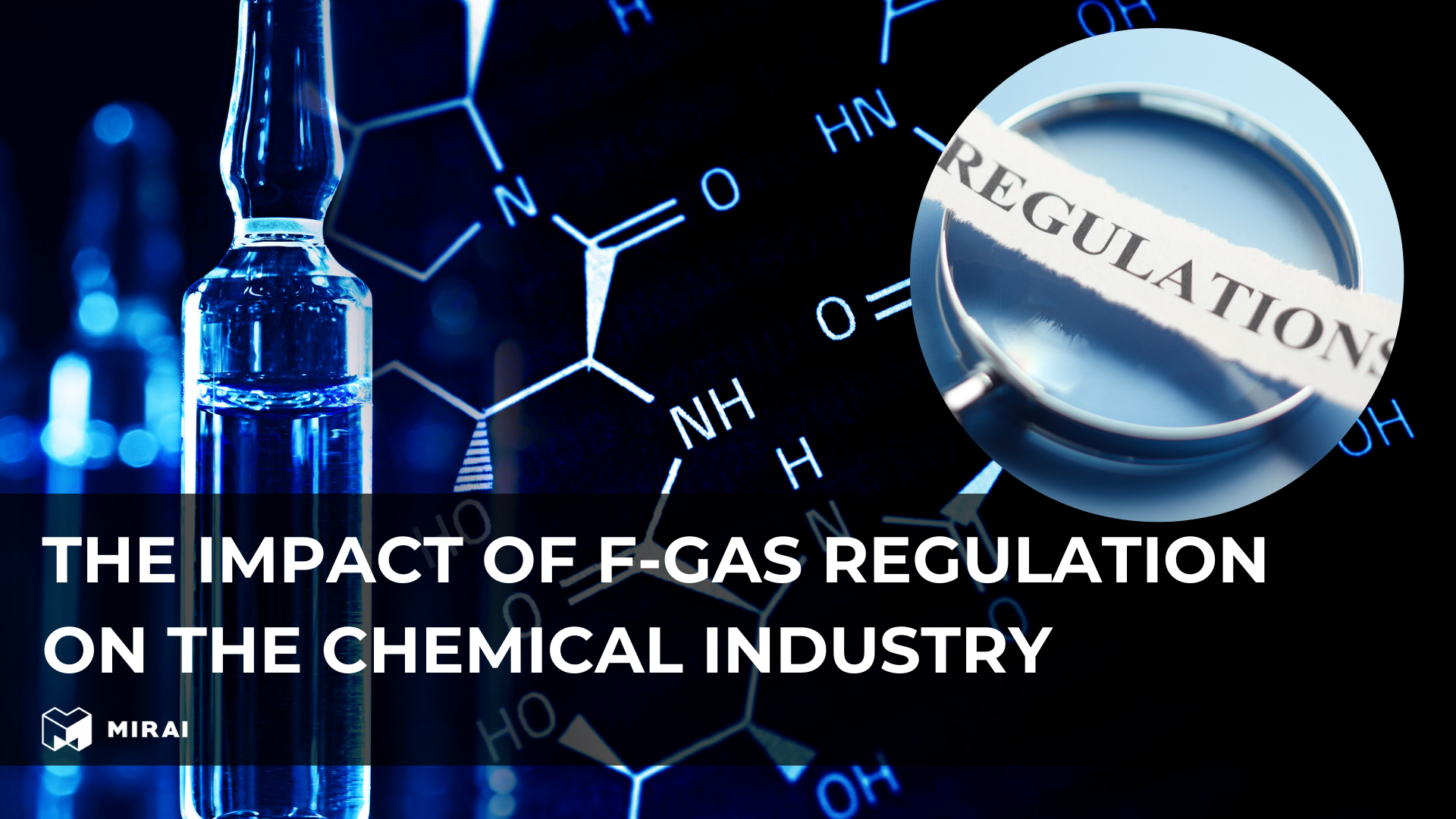Revolutionizing Cooling Energy-Efficient Refrigeration with MIRAI X CRYO

In today’s rapidly evolving refrigeration industry, energy efficiency has become a priority for businesses worldwide. With rising energy costs and growing environmental concerns, adopting energy-saving refrigeration systems is more critical than ever. Mirai Intex, a leader in advanced and sustainable cooling technologies, sets the standard for the next generation of energy-efficient refrigeration systems. The innovative solutions from Mirai Intex cater to industrial, commercial, and retail needs, enabling businesses to stay ahead in a competitive landscape while embracing environmental stewardship.
Energy efficiency in refrigeration isn’t just a technical upgrade, it’s a mindset shift towards a more sustainable and responsible future. Mirai Intex champions this change by delivering systems that marry cutting-edge innovation with tangible, real-world benefits.
Why Energy Efficient Refrigeration Matters
Refrigeration plays a vital role in our lives, from preserving food to supporting industrial operations and safeguarding medical supplies. However, traditional systems often consume significant energy, leading to high costs and environmental harm.
Energy efficient commercial refrigeration bridges this gap by blending cutting-edge technology with eco-friendly principles.
Mirai Intex leads this transformation with energy efficient refrigeration systems that deliver exceptional performance while keeping sustainability at the forefront. With solutions tailored to meet the unique challenges of various industries, Mirai Intex is driving a paradigm shift in how businesses approach cooling and energy consumption.
The Global Energy Landscape
The global demand for energy-efficient solutions is driven by:
- Rising energy costs: Businesses are under increasing pressure to manage expenses, and efficient systems can significantly reduce operational costs.
- Stringent environmental regulations: Governments worldwide are implementing policies that mandate reduced carbon emissions also known as greenhouse gases and the use of sustainable refrigerants.
- Energy-efficient refrigeration is the answer to these challenges, enabling industries to remain compliant while achieving cost savings and enhanced operational efficiency.
How Refrigeration Works
Refrigeration works by removing heat from an enclosed space to lower and maintain its temperature. This process relies on a refrigeration cycle, which includes four main components: a compressor, condenser, expansion element, and evaporator. A refrigerant circulates through these components, absorbing heat from the cooled space by evaporating liquid refrigerant in the evaporator and releasing it outside during condensation process in condenser. The compressor pressurizes gas phase refrigerant, enabling it to cycle continuously, maintaining consistent cooling. This method of heat transfer is widely used for preserving food, medicines, and other temperature-sensitive products.
Energy Efficiency: A Modern Imperative
Adopting energy-efficient refrigeration isn’t just an option—it’s a necessity. Benefits include:
- Environmental gains: Lower carbon emissions and eco-friendly refrigerants.
- Cost savings: Reduced energy consumption directly translates into lower bills.
- Enhanced compliance: Meeting stringent energy efficiency standards and regulations globally.
Revolutionizing Refrigeration Technology
Thermal Science in Action. Energy-efficient systems are built on advanced thermal science, optimizing heat transfer to cut energy waste. Mirai Intex uses innovative engineering to ensure precision and reliability, leading to systems that perform efficiently under even the most demanding conditions.
Mechanical Innovation. Durable, high-performance components are essential for energy-efficient refrigeration. Mirai Intex integrates robust materials and sophisticated designs for systems that excel in demanding applications. These systems are designed to provide long-lasting performance, reducing the need for frequent replacements or costly repairs.
Why Choose Energy Efficient Refrigeration?
Environmental Impact
Energy-efficient refrigeration systems significantly reduce the environmental footprint compared to traditional systems. These advancements not only conserve energy but also address key environmental challenges, making them a critical component of sustainable development. Here’s how energy-efficient refrigeration impacts the environment positively:
Lower Greenhouse Gas Emissions
Energy-efficient refrigeration consumes less electricity, which directly reduces the demand for energy produced by fossil fuels. This decrease in energy consumption translates into fewer carbon dioxide emissions, helping to combat climate change.
Impact: A substantial reduction in the carbon footprint of industries like food retail, logistics, and healthcare.
Reduced Use of High-GWP Refrigerants
Many energy-efficient systems use eco-friendly refrigerants with low global warming potential (GWP) or natural alternatives like ammonia and CO2. These refrigerants have a significantly smaller impact on global warming if released into the atmosphere. But at the same time there is a refrigerant that has a GWP of 0 - air, the most environmentally friendly solution.
Impact: Mitigation of the harmful effects caused by refrigerant leaks, contributing to a healthier environment.
Prevention of Ozone Depletion
Modern energy-efficient refrigeration systems comply with regulations to eliminate ozone-depleting substances such as chlorofluorocarbons (CFCs) and hydrochlorofluorocarbons (HCFCs). These systems are designed to align with global environmental agreements like the Montreal Protocol.
Impact: Protection and recovery of the ozone layer, which shields the Earth from harmful ultraviolet radiation.
Conservation of Natural Resources
Energy-efficient systems optimize energy use, reducing the need for resource-intensive power generation. This conservation helps preserve finite resources like coal, natural gas, and oil.
Impact: Sustainable use of natural resources and reduced pressure on energy infrastructure.
Decrease in Heat Emissions
Efficient refrigeration systems produce less waste heat due to optimized operation, contributing to a reduced urban heat island effect and cooler surroundings.
Impact: Improved local environmental conditions, particularly in urban and industrial areas.
Water Conservation
Energy-efficient systems often incorporate water-saving technologies, particularly in industrial settings where water is used for cooling.
Impact: Reduced strain on local water resources and ecosystems.
Economic Benefits of Efficient Refrigeration Systems
Investing in efficient refrigeration systems offers significant economic advantages, making them a smart choice for businesses across various industries. These benefits include:
1. Lower Energy Costs. Efficient refrigeration systems consume less electricity, reducing utility bills substantially. Advanced technologies like variable-speed compressors and optimized insulation minimize energy waste, ensuring long-term savings.
2. Reduced Maintenance and Repair Expenses. Modern, efficient systems are built with durable components and smart diagnostic tools, reducing the frequency and cost of repairs. Predictive maintenance features identify potential issues early, preventing costly breakdowns.
3. Extended Equipment Lifespan. High-quality, energy-efficient refrigeration systems are designed to last longer when properly maintained. This decreases the frequency of replacements, saving capital expenses over time.
4. Compliance with Regulations. Adopting refrigeration units with eco-friendly refrigerants and energy-saving features helps businesses comply with environmental regulations, avoiding fines or penalties and benefiting from potential government incentives or tax breaks.
5. Enhanced Operational Efficiency. Reliable refrigeration ensures consistent performance, minimizing product losses caused by temperature fluctuations. This is particularly critical for industries like food retail and healthcare, where product integrity directly impacts revenue.
6. Competitive Advantage. Energy-efficient operations reduce overall operational costs, allowing businesses to offer competitive pricing or reinvest savings into other growth areas. Additionally, demonstrating sustainability efforts enhances brand reputation, attracting eco-conscious customers.
7. ROI on Sustainability Initiatives. Energy-efficient systems often qualify for green certifications or energy rebates, providing additional financial incentives. Businesses can further leverage these initiatives to strengthen their sustainability profiles and capitalize on emerging markets that prioritize environmentally friendly practices.
By optimizing refrigeration efficiency, businesses not only save money but also enhance reliability and sustainability, creating a win-win scenario for both their bottom line and long-term operational success.
What’s New in Refrigeration?
Smart Technology
Smart technology in refrigeration is revolutionizing the way cooling systems operate, making them more efficient, reliable, and user-friendly. By integrating advanced sensors, IoT connectivity, and artificial intelligence, these systems can monitor and optimize performance in real-time. Smart refrigeration allows for precise temperature control, predictive maintenance, and energy management, reducing downtime and operational costs. Remote monitoring capabilities enable users to access and manage systems via mobile apps or web platforms, ensuring constant oversight even from a distance. These intelligent systems not only enhance convenience but also contribute to sustainability by minimizing energy consumption and reducing waste, making them an invaluable asset across industries like retail, healthcare, and logistics.
Eco-Friendly Refrigerants
Eco-friendly refrigerants are pivotal in the transition toward sustainable cooling solutions, offering a viable alternative to traditional substances that contribute to ozone depletion and global warming. These refrigerants, including natural options like ammonia, carbon dioxide, and hydrocarbons, as well as low-global-warming-potential (GWP) synthetic alternatives such as HFOs, are designed to reduce environmental impact while maintaining high performance and energy efficiency. By adopting eco-friendly refrigerants, industries can significantly lower greenhouse gas emissions, comply with international environmental regulations, and align with global sustainability goals. Their use is a critical step in mitigating climate change while ensuring reliable and efficient cooling across various sectors. Additionally, a new trend in the market is the use of HFO refrigerants, which may initially seem like a safe solution, but this is not the case. British scientists have already proven that HFO breaks down into harmful TFA, which infiltrates the soil and air.
Innovative Offerings
The Mirai Intex is a great example of innovative cooling. The company manufactures industrial cooling equipment that uses only air or environmentally friendly refrigerants in its machines. Thanks to this approach, Mirai Intex customers do not have to worry about refrigerant bans and quotas because air is the safest and free refrigerant.
In addition, the company shows its competitive efficiency in reaching temperatures as low as -160 degrees Celsius and its precision in holding and smoothly changing temperatures in all possible applications. Mirai Intex has extensive experience with the pharmaceutical industry, transportation, chemical industry, cryotherapy as well as chip manufacturing and other applications, showing that market leaders choose environmentally friendly and efficient cooling.
How to Select and Maintain Efficient Refrigeration
Choosing and maintaining efficient refrigeration systems is essential for minimizing energy consumption, ensuring reliability, and extending the lifespan of the equipment. Here’s a guide to making informed choices and keeping your systems running optimally:
Selection Tips:
- Assess Your Needs: Determine the specific requirements, such as capacity, temperature range, and application (e.g., retail, industrial, or healthcare).
- Energy Efficiency: Look for models with high Energy Star ratings or other efficiency certifications. Opt for units that use eco-friendly refrigerants and have advanced energy-saving features like variable speed compressors.
- Smart Technology: Consider systems equipped with remote monitoring or remote access for enhanced control and diagnostics.
- Reliability and Durability: Choose systems from reputable manufacturers with a proven track record of performance and support.
- Sustainability Goals: Align your selection with sustainability objectives by selecting systems designed to minimize environmental impact and comply with regulations.
By carefully selecting energy-efficient refrigeration systems and committing to a proactive maintenance schedule, businesses can achieve optimal performance, reduce operational costs, and contribute to a more sustainable future.
What’s Next in Refrigeration?
Emerging Innovations
- Magnetocaloric Refrigeration: Offers cooling without traditional refrigerants, promising a sustainable future.
- Nanotechnology: Enhances system efficiency, durability, and heat transfer, making cooling more effective.
Mirai Intex continues to invest in research and development, staying ahead of trends to deliver cutting-edge solutions to their customers.
The Role of Policy
Global agreements like the Kigali Amendment encourage industries to adopt low-GWP refrigerants and energy-efficient systems. Mirai Intex aligns its solutions with these evolving standards, giving businesses a reliable partner in compliance and innovation.
The Mirai Intex Advantage
Energy-efficient refrigeration isn’t just about meeting today’s needs—it’s about preparing for a sustainable tomorrow. With advanced engineering, smart technologies, and eco-friendly designs, Mirai Intex sets new industry benchmarks.
From industrial cooling to commercial systems, Mirai Intex delivers tailored solutions that enhance efficiency, reduce costs, and prioritize environmental responsibility. By partnering with Mirai Intex, you’re choosing innovation, sustainability, and unparalleled performance.
This version incorporates additional context, emphasizes broader implications, and highlights key benefits and trends in refrigeration technology. Let me know if you'd like further refinements!

